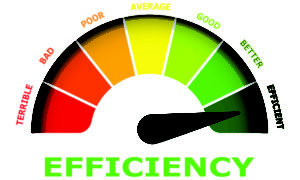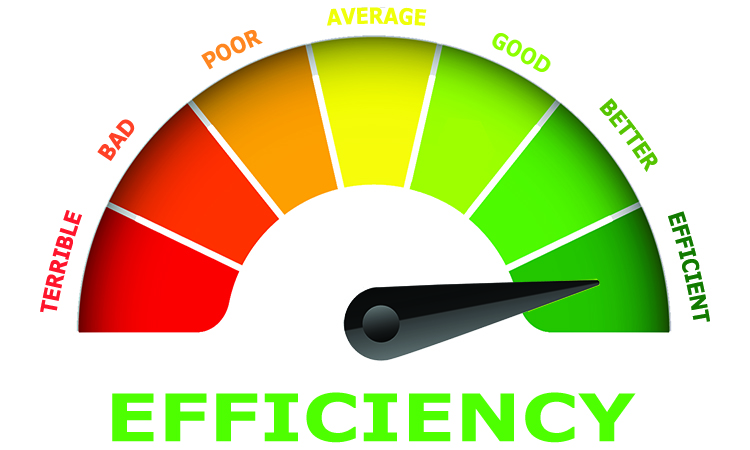 Energy efficiency has the advantage of reducing all types of power plant-related emissions simultaneously by avoiding the need to generate electricity in the first place. Therefore, energy efficiency programs can improve air quality by reducing emissions. Whenever households and businesses reduce electricity consumption, somewhere on the grid one or more generators reduce their electric output (all else being equal). Typically, the avoided generation is from higher marginal-cost, fossil fuel-fired power plants, which, depending on the region, can be higher emitting power plants. Thus, avoiding generation from these units is desirable to reduce air pollutant emissions. – Pathways/Energy.gov 2017 Report
Energy efficiency has the advantage of reducing all types of power plant-related emissions simultaneously by avoiding the need to generate electricity in the first place. Therefore, energy efficiency programs can improve air quality by reducing emissions. Whenever households and businesses reduce electricity consumption, somewhere on the grid one or more generators reduce their electric output (all else being equal). Typically, the avoided generation is from higher marginal-cost, fossil fuel-fired power plants, which, depending on the region, can be higher emitting power plants. Thus, avoiding generation from these units is desirable to reduce air pollutant emissions. – Pathways/Energy.gov 2017 Report
Energy Efficiency, while not new or exciting, is simply very efficient. According to the 2017 DOE National report, These programs help reduce electricity market prices, reduce disconnections, reduce the number of customers in arrears, improve system reliability and electricity price stability, support local job growth and provide a host of benefits to participants, including non-energy benefits such as increased property values or positive health impacts. Energy efficiency is playing a significant role in helping meet the energy needs of energy customers throughout the country, with many states incorporating annual energy savings of ≧ 1 percent or more into their energy plans and delivery strategies, along with additional policies and programs at the state and local levels.
 Energy efficiency is a good investment. Energy efficiency is a well-established industry in the U.S. with billions of dollars invested annually through administered energy efficiency services programs, energy savings performance contracting, and other efforts.
Energy efficiency is a good investment. Energy efficiency is a well-established industry in the U.S. with billions of dollars invested annually through administered energy efficiency services programs, energy savings performance contracting, and other efforts.

